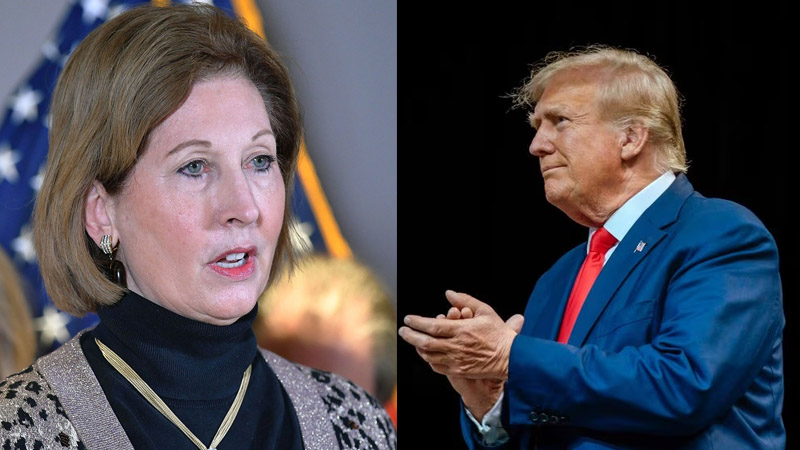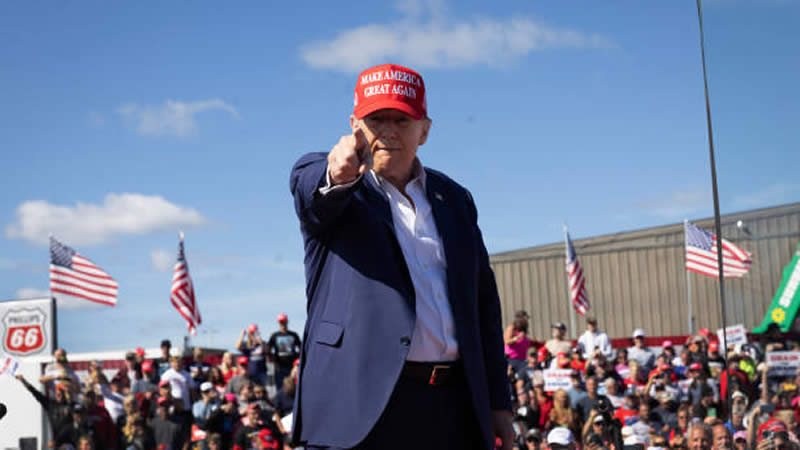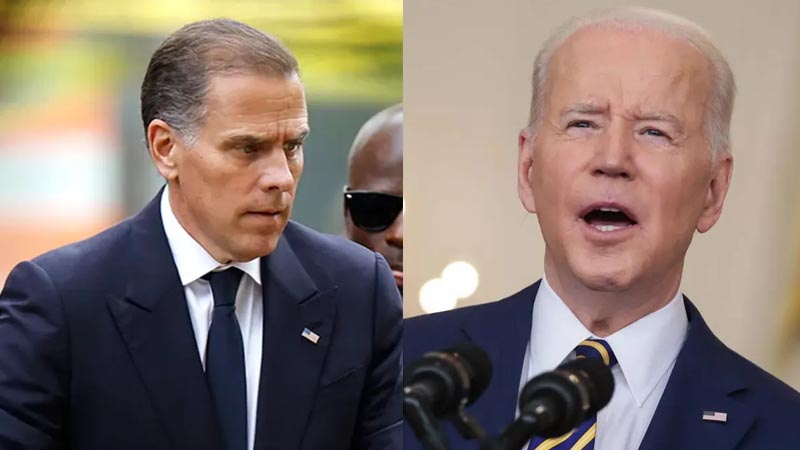Election Official Rebukes Sidney Powell’s False Voter Fraud Claims

Mandel Ngan/AFP/Getty Images
Sidney Powell, a former attorney for Donald Trump embroiled in legal controversies surrounding the 2020 election, faced criticism from an election official for propagating false allegations of voter fraud related to the upcoming 2024 contest.
Powell, often dubbed “the Kraken” due to her assertion of unleashing significant revelations to support Trump’s electoral claims, shared what she purported to be evidence of voter fraud originating from Maricopa County, Arizona, on Friday.
However, the claim Powell disseminated had already been refuted by a county official several days earlier. Stephen Richer, Maricopa County Recorder, publicly responded to a woman who had received two ballots, clarifying that the issuance was due to her address change on the final day of registration.
“HERE WE GO,” she wrote, including what appears to be a long headline from a right-wing news site. “Maricopa County is Sending Phony Mail-In Ballots AGAIN for Presidential Preference Election – One Voter Receives TWO Ballots With Her Name, Another Receives Ballot for Fulton County, GA Resident.”
This incident highlights ongoing concerns regarding misinformation and baseless claims surrounding elections, particularly as the 2024 elections approach. Powell’s dissemination of debunked information underscores the need for accuracy and fact-checking in public discourse, especially concerning critical democratic processes like voting.
The controversy surrounding Powell’s actions adds to the broader debate about electoral integrity and the impact of false narratives on public trust in the electoral system. Misinformation, particularly when perpetuated by influential figures, can erode confidence in the democratic process and undermine the legitimacy of election outcomes.
It also raises questions about the responsibility of public figures, especially those with significant platforms, to verify the accuracy of the information they share. Powell’s dissemination of unsubstantiated claims, despite contrary evidence, reflects a concerning trend of spreading disinformation for political purposes.
“Because early ballots must go out on Feb. 21, your Chandler ballot was already set to go out, and so it did,” he wrote. “Then we sent out a new ballot to your Tempe address when we processed your voter registration modification.”
In response to Powell’s actions, election officials and advocates emphasize the importance of transparency, accountability, and adherence to factual accuracy in electoral discourse. Ensuring the integrity of elections requires a commitment to truthfulness and the diligent investigation of any allegations of irregularities or fraud.
Moreover, the incident underscores the critical role of election officials in safeguarding the electoral process against misinformation and disinformation campaigns. Their prompt response to false claims helps maintain public confidence in the integrity of elections and reinforces trust in democratic institutions.
Moving forward, addressing the spread of misinformation in electoral contexts necessitates a concerted effort from policymakers, media organizations, and civil society to promote truthfulness, accountability, and transparency. By upholding these principles, societies can strengthen democratic norms and uphold the integrity of electoral processes.
“Lol,” Richer wrote. “Of course, you post this well after it’s been explained/debunked.” He then added some questions to determine her potential motive: “Genuinely curious; are you? 1) too lazy to do 5 minutes of research? 2) too dumb? 3) too immoral? 4) too invested?”


